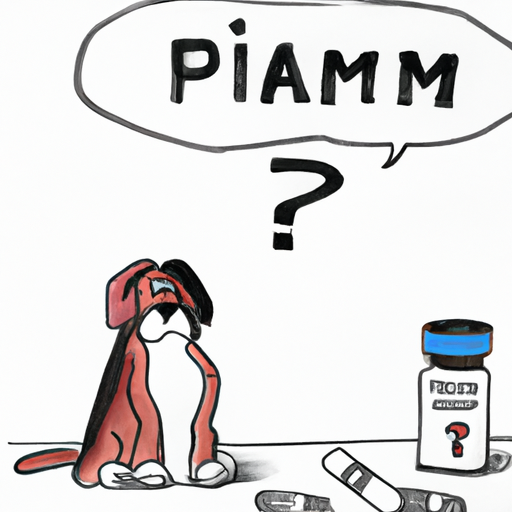Understanding Pimobendan
Pimobendan, often marketed under the name Vetmedin, is a medication commonly prescribed by veterinarians for dogs suffering from heart conditions. It is a type of drug known as an inodilator, which means it serves a dual purpose: strengthening the heart’s contractions and dilating the blood vessels. This allows the heart to pump more efficiently and reduces the workload on the heart.
Indications for Pimobendan Use
Your vet might prescribe Pimobendan for your furry friend if they are diagnosed with any of the following conditions:
- Dilated Cardiomyopathy (DCM)
- Myxomatous Mitral Valve Disease (MMVD)
- Congestive Heart Failure (CHF)
However, Pimobendan is typically reserved for more advanced cases. It’s not a cure, but it can improve the quality and extend the length of your dog’s life.
Administering Pimobendan
Administering Pimobendan to your dog should be done under the guidance of your vet. In general, here are some tips:
- Give the medication orally, usually twice a day.
- It’s best given on an empty stomach, about an hour before meals.
- Never exceed the prescribed dosage.
| Dosage | Frequency |
|---|---|
| As prescribed by the vet | Twice a day |
Potential Side Effects of Pimobendan
Like any medication, Pimobendan can have side effects. While most dogs tolerate it well, some may experience:
- Loss of appetite
- Lethargy
- Diarrhea
- Difficulty breathing
- Fainting
If you notice any of these symptoms, contact your vet immediately.
FAQ About Pimobendan
Q: Can I stop giving Pimobendan if my dog seems better?
A: No, Pimobendan is a long-term medication. Stopping it abruptly can worsen your dog’s condition.
Q: Can Pimobendan be used with other heart medications?
A: Yes, it’s often used in combination with other drugs. However, this should always be under the guidance of your vet.
Q: Is Pimobendan safe for all dogs?
A: Pimobendan is generally safe, but it may not be suitable for dogs with certain health conditions. Always consult with your vet.
Remember, you are not alone in this journey. Your vet is there to guide you, and your love and care are the best medicine your dog can have.



